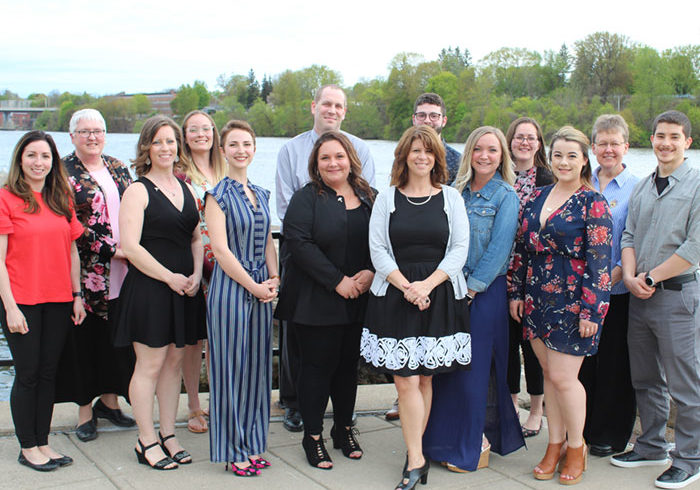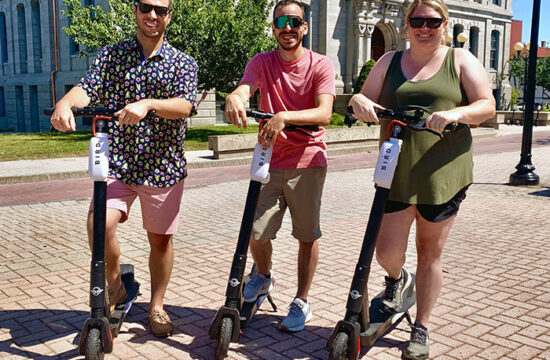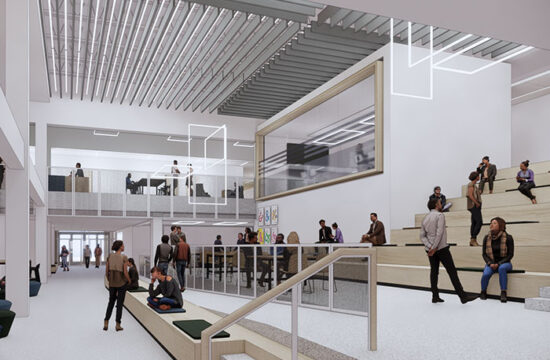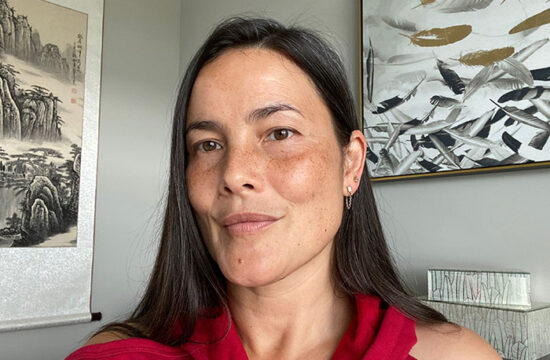First class graduating this May
By Deborah Jeanne Sergean
For years, Cayuga Community College had not added many new programs. Sticking with what works makes sense, especially for a community college. But an uptick in the need for occupational therapy provided the catalyst to add the occupational therapy assistant program four years ago.
Meanwhile, Joan Meyers, a licensed occupational therapist at Gavras Center in Auburn, used her master’s in education degree while serving as an adjunct professor at Onondaga Community College. Meyers felt the tug toward going fulltime in education shortly after CCC began the occupational therapy assistant program. The school brought her onboard in 2014 to develop the program further.
“This opening came up and I thought it was time to do something different,” she said.
She said that CCC’s launching the program was timely for the community as well.
“There’s a need for healthcare programs in Oswego County,” Meyers said. “We especially need this, considering the demographics of Oswego County. It’s an underserved population. Some children are on waiting lists to receive therapy services.”
She views the program as a great opportunity for certain students.
“For someone interested in helping people and having an effect on people’s lives, it’s an excellent opportunity,” Meyers said.
In general, community college students tend to be locals, so offering the opportunity to learn at home may keep them living local after they graduate, especially if their school promotes clinical field placement, like CCC.
“Some of our students were hired on by the same companies,” Meyers said.
In addition to working as therapy assistants, graduates may pursue other possibilities such as community health programming, wellness programs and other types of therapy like hippotherapy, using horses to work with patients.
“They might be trained to do types of services for homeless shelters,” Meyers said. “We had a student do a field placement at a refuge center.”
Last spring, 10 students completed the four-year program and nine are anticipated to graduate this year.
When the program started, the it still was in the accreditation process. Meyers feels sure that now that it’s completed, the interest in the program will only increase.
The biggest surprise Meyers encountered was how much networking she needed to do when developing and launching the program since it was new to the college.
“I had to reach out to others at colleges with similar programs,” Meyers said. “Everyone’s been very helpful.”
She had never developed curriculum before, so that was a new challenge, especially since it had to meet national accreditation standards.
“My biggest hope for the students is that they will be creative and professional and curious,” she said. “I want them to go out and still have a curiosity and seek out new learning.”
Meyers owns therapy dogs that work as comfort animals. She has brought them on campus to help students de-stress while studying for final exams, and to places like nursing homes for residents’ enjoyment. She is involved with rescue organizations for Bernese mountain dogs.











